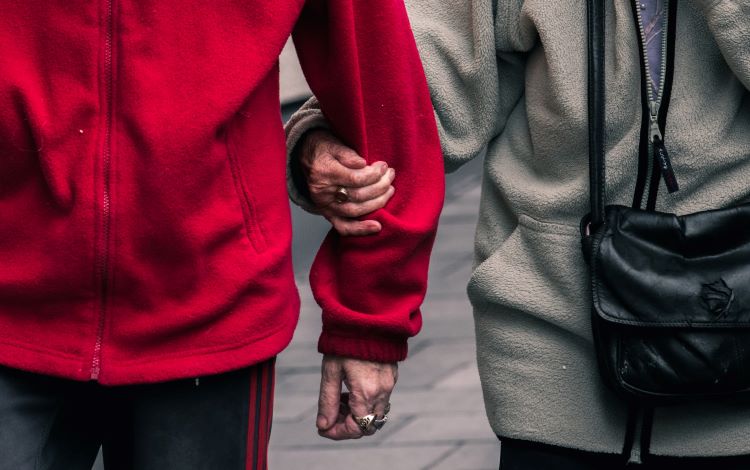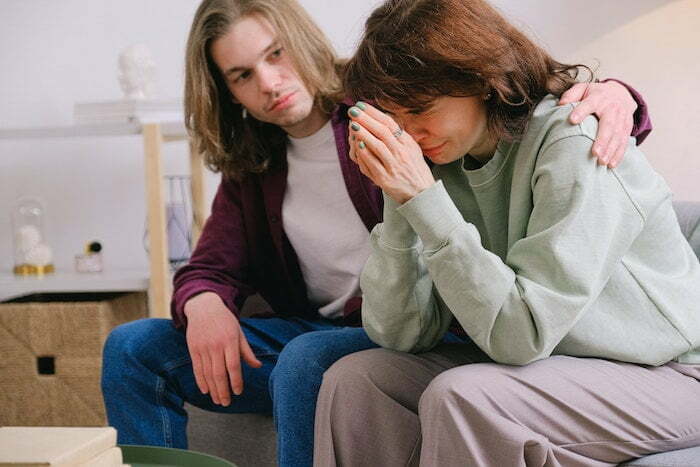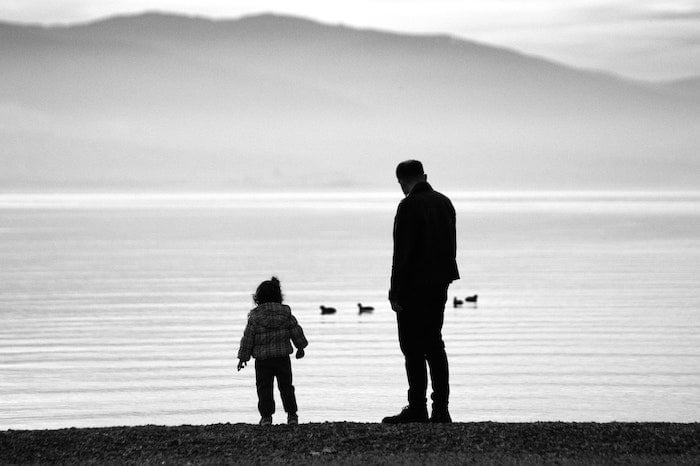There are many different types of addiction – substance, gambling, or the internet, for example.
Although some addiction might seem more severe than others, all addiction has both negative short-term and long-term consequences.
For example, addiction can have serious health implications – both physical and psychological – and can lead to financial troubles, social isolation, and engagement with risk-taking behaviours.
However, addiction does not only impact the person that is addicted.
In many cases, the entire family feels the consequences of their loved one’s actions.
Whether it is a partner, spouse, parent, or child, those closest to someone with an addiction will be affected.
This can manifest itself in many ways, such as the family feeling distant, unsure, worried, or afraid. (1)
The purpose of this article is to discuss how addiction affects the family.
It will cover different perspectives, such as those from parents, children, and romantic partners.
In addition, it will highlight what help is available for families and their loved ones, how to access it, and what to expect.
What are the Signs That a Family Member is Suffering from Addiction?

Before diving into how addiction affects the family, it is worth discussing the signs of addiction.
This will vary from addiction to addiction, but universal signs are pertinent.
One of the most evident signs of addiction is withdrawal. This is when a person experiences intense cravings and begins to detox without the substance.
This usually leads to a range of withdrawal symptoms, such as headaches, vomiting, stomach issues, paranoia, and anxiety.
Although the physical symptoms of withdrawal might be harder for families to recognise, most addictions will change people’s personalities and behaviours.
Examples of this might include:
- The loved one is more irrational, agitated, or paranoid
- The loved one experiences rapidly changing and fluctuating emotions.
- The loved one becoming anti-social and isolating
- The loved one is no longer engaging in hobbies or interests
- The loved one engages in risk-taking behaviours, such as using a substance at inappropriate times or engaging in criminal activities
- The loved one attempting to hide their use of a substance or engaging in addictive behaviours
These are some of the most common signs of addiction, however, these can vary a lot.
It is recommended that families consult a professional – a GP or social worker, for example – as they will be best suited to advise on whether addiction has occurred. (2)
How Does Addiction Affect Spouses?

As one can imagine, if one person in a romantic relationship, such as a spouse, is suffering from addiction, their partner will also suffer.
Most obvious is the emotional distress that is caused by watching a loved one struggle with addiction.
People that have a partner with addiction might feel a range of different feelings and emotions, such as shame, guilt, worry, anger, and fear.
This might also lead to negative mental health issues, such as anxiety and depression.
Most healthy romantic relationships are built on trust, communication, openness, intimacy, and affection.
When someone is suffering from addiction, these important factors can be negatively impacted.
Often people will lie about their addiction and seek to hide it from those that they love.
This breaks trust and can lead to a breakdown in communication.
Unfortunately, addiction is often synonymous with selfishness. People with substance dependency tend to put their needs first.
This will impact the intimacy and the desire of the loved one to spend time with their partner.
As mentioned, behaviours are also affected by addiction. A loved one might become more aggressive, irrational, and paranoid.
Such behaviours are not conducive to a healthy relationship. (3)
How Does Addiction Affect Parents?

Parents that have a child that is suffering from addiction have a unique set of challenges.
Many parents will feel guilty and that they must be the problem-solver for their child’s addiction.
In some cases, feelings of guilt and shame might lead parents to engage in enabling behaviours – providing money or accommodation, for example, for their loved one.
Complex emotions might also lead the parent to feel that they are to blame. Parents might ask themselves if it is their fault; if it was their parenting that led to the addiction; and what can be done to intervene.
Addiction will also negatively impact the dynamics and relationship between parents and the child.
Their bond and closeness will diminish, and parents will feel untrusting towards their children.
This is often a by-product of the child’s change in personality and behaviours, as mentioned above. (4)
How Does Addiction Affect Children?

According to the latest data, 1 in 5 children grow up in a home that has a parent(s) with addiction.
In most cases, parents have some form of substance dependency.
Children that grow around parental substance abuse will experience a range of short-term and long-term effects.
Seeing parents suffering from addiction can lead to mental and emotional disorders, such as anxiety and depression.
Such environments also increase stress for the child. This too has a devastating impact on a child’s mental health and development.
One study found that stressful environments can damage a child’s Executive Function – this is the part of the brain responsible for such things as emotional development and critical thinking.
Statistics also show that children that have parents that suffer from addiction are more likely to suffer from Substance Use Disorders (SUDs) themselves.
Rates of physical and sexual abuse are also higher in households where the parents suffer from addiction.
Many children that grow up in such an environment tend to suffer later in life.
It is not uncommon for adults to suffer from Post-traumatic Stress Disorder (PTSD) and other mental disorders, for example, as a result of their childhood experiences. (5)
How Does Addiction Affect Siblings?

Psychologists and addiction experts often refer to siblings of substance-dependent people as invisible victims.
The reason for this is that many people forget that siblings are often overshadowed by addiction.
This is when a family member has an addiction, they will often take the spotlight.
Parents will often affix their attention onto the child that needs help.
Studies suggest that siblings will often feel a range of negative emotions, such as anger, confusion, resentment, shame, guilt, and frustration.
Medical professionals suggest that there tend to be two outcomes of this:
- The sibling completely dismisses the use of substances
- They start to use substances themselves
This is a generalisation, but studies have found that siblings have an increased chance of developing SUDs. (6)
How Do I Help a Family Member Overcome Addiction?

Helping a loved one overcome addiction is no easy task. However, there are some things that families can do.
First, is to speak to a professional. Whether a GP or psychologist, they will be able to offer useful insight and recommend treatment options.
In addition to this, a popular choice is to conduct an intervention.
Interventions, in simple terms, are a gathering of friends and family to convince a loved one that they need help.
Interventions have a proven success rate and provide family members with an opportunity to express their concerns.
Interventions usually have three goals:
- Shed light on how a loved one’s addiction has negatively impacted their family and friends
- To encourage the loved ones to seek professional help
- Provide an ultimatum; that is, family and friends ceasing in enabling behaviour if the loved one does not seek help
In recent years, medical professionals have developed great methods to help families cope with addiction and help their loved ones.
An example of this is Community Reinforcement and Family Training (CRAFT). (7)
CRAFT was specifically developed with families in mind and seeks to:
- Teach families about addiction – why it occurs and how it is sustained
- Teach families about triggers and addiction-related behaviours
- Teach families positive communication
- Teach families how to support a loved one
- Teach families how to conduct a successful intervention
What Help is Available for Families and People Suffering from Addiction?

In the UK, there are many great local drug and alcohol services.
Examples of this include Alcoholics Anonymous (AA), Narcotics Anonymous (NA), SMART Recovery, and other various local organisations
Services that such organisations provide include:
- Help to access treatment
- Detox and withdrawal support
- Counselling and therapy
- Advice about addiction
In addition to providing help for those that suffer from addiction, many services also offer support for families.
This might include therapy, counselling, or useful information about addiction.
For more information about local drug and alcohol services in the UK, please follow this link.
For those suffering from addiction, the UK is also home to many great private rehabs.
However, these can be expensive. On average, they tend to cost between £300 to £500 per day.
Therapy is also a great option for both families and those that are suffering from addiction.
Some popular therapy types include:
- Individual Therapy: Individual therapy is useful for talking about issues of addiction with a trained professional. For family members, it will offer an opportunity to discuss how the loved one’s addiction has impacted them, identify emotional damage, and develop coping mechanisms.
- Cognitive Behavioural Therapy (CBT)
- Family Therapy: Family therapy is also great for both family members and their loved ones.Family therapy’s objective is to air out the impact of addiction on families. It provides people with a chance to discuss their feelings and emotions in a controlled environment, mediated by a professional.
- Group Therapy: Group therapy is great for connecting with peers – people that are going through similar experiences. This can help alleviate feelings of isolation when dealing with issues of addiction.
References
(1) Barnard, Marina. Drug addiction and families. Jessica Kingsley Publishers, 2006.
(2) Alavi, Seyyed Salman, Masoud Ferdosi, Fereshte Jannatifard, Mehdi Eslami, Hamed Alaghemandan, and Mehrdad Setare. “Behavioral addiction versus substance addiction: Correspondence of psychiatric and psychological views.” International Journal of preventive medicine 3, no. 4 (2012): 290.
(3) Hurcom, Carolyn, Alex Copello, and Jim Orford. “The family and alcohol: Effects of excessive drinking and conceptualizations of spouses over recent decades.” Substance Use & Misuse 35, no. 4 (2000): 473-502.
(4) Chelton, L. Guy, and Warren C. Bonney. “Addiction affects and self-object theory.” Psychotherapy: Theory, Research, Practice, Training 24, no. 1 (1987): 40.
(5) Strathearn, Lane, and Linda C. Mayes. “Cocaine addiction in mothers: potential effects on maternal care and infant development.” Annals of the New York Academy of Sciences 1187, no. 1 (2010): 172-183.
(6) Howard, Kasi N., Julianna Heston, Charlene M. Key, Erin McCrory, Catherine Serna-McDonald, K. Rachelle Smith, and Susan S. Hendrick. “Addiction, the sibling, and the self.” Journal of Loss and Trauma 15, no. 5 (2010): 465-479.
(7) Meyers, Robert J., William R. Miller, Dina E. Hill, and J. Scott Tonigan. “Community reinforcement and family training (CRAFT): Engaging unmotivated drug users in treatment.” Journal of Substance Abuse 10, no. 3 (1998): 291-308.





